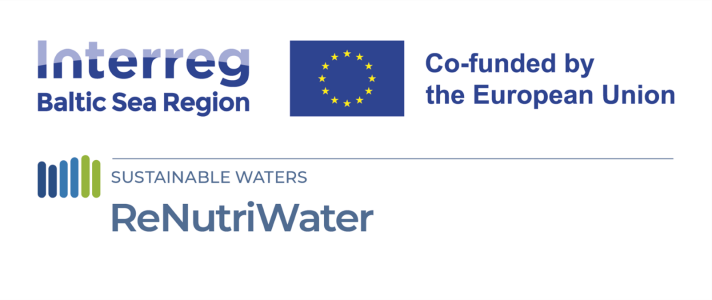ReNutriWater – Closing local water circuits by recirculation of nutrients and water and using them in nature

Project title: ReNutriWater – Closing local water circuits by recirculation of nutrients and water and using them in nature
Implementing Entity: Faculty of Building Services, Hydro and Environmental Engineering
Head in PW: PhD Eng. Monika Żubrowska-Sudoł
Team in PW: PhD Eng. Monika Żubrowska-Sudoł, PhD Eng. Agnieszka Pusz, PhD Eng. Justyna Czajkowska, PhD Eng. Justyna Walczak, PhD Eng. Katarzyna Umiejewska, M. Eng. Alicja Knap-Bałdyga, M. Eng. Dominik Rogalski, M. Eng. Katarzyna Sytek-Szmeichel, Mariusz Florkowski
Project leader: PhD Eng. Klara Ram (IGWP)
Project leader: Polish Waterworks Chamber of Commerce
Consortia: Centrum Balticum Foundation (Finland), University of Latvia (Latvia), Mineral and Energy Economy Research Institute of the Polish Academy of Sciences (Poland), Savonia University of Applied Sciences Ltd. (Finland), Warsaw University of Technology (Poland), Municipality of Samsø (Denmark), Schwander Polska Sp. z o.o. (Poland), Municipal Water Supply and Sewerage Company (Warsaw, Poland)., Samsø Wastewater Utility (Denmark), Jurmala Water Utility (Latvia), Siauliai Chamber of Commerce, Industry and Crafts (Lithuania), VNK serviss, Ltd. (Latvia), National Regions Development Agency (Lithuania)
Implementation period: January 2023 – December 2025
Funding sources: Interreg Baltic Sea Region 2021-2027, Water-smart societies, 2.1 Sustainable waters
Total budget: 3 847 233,61 €
Budget PW: 318 873 €
The “ReNutriWater – Closing local water circuits by recirculation of nutrients and water and using them in nature” Project is an international initiative co-financed under the Interreg Baltic Sea Region 2021-2027 program. The project is implemented in close international cooperation, involving 13 partners from 5 countries of the Baltic Sea Region: Poland, Finland, Lithuania, Latvia, and Denmark. The “ReNutriWater” Initiative aims to support sustainable water management in the Baltic Region by implementing solutions enabling water recovery in this area. This project is a response to the problem of water stress caused by shrinking freshwater resources in the Baltic Region. Progressing climate change and increasing environmental pollution significantly contribute to the increase in the value of fresh water in this area. Unfortunately, in many countries, the use of fresh water is still limited to single use, which translates into a waste of money, energy, and human work put into its proper purification and distribution. An alternative to the currently used solutions, which fit into the concept of an outdated linear economy, is the recovery of water from municipal wastewater, allowing for more rational water management and reducing the consumption of natural water resources. Reclaimed water can be used by local authorities and private entities for various purposes, including street cleaning, car washing, irrigation of recreational areas, and after proper treatment for drinking purposes. However, the use of reclaimed water poses some challenges. Due to the nature of the source of water undergoing reclamation, it is crucial to ensure the safety of its use and to develop solutions enabling obtaining water of required quality – free from pathogens and containing the appropriate amount of nutrients. Equally important is overcoming social resistance caused by the so-called “yuck factor” and gaining public support for implementing the proposed solutions. The “ReNutriWater” Project aims to overcome these challenges to accelerate the creation of policies that would facilitate the implementation of pro-ecological solutions related to water reuse in European cities, which will fit into the concept of a circular economy and contribute to the implementation of SDG 6: Clean Water and Sanitation For All.
